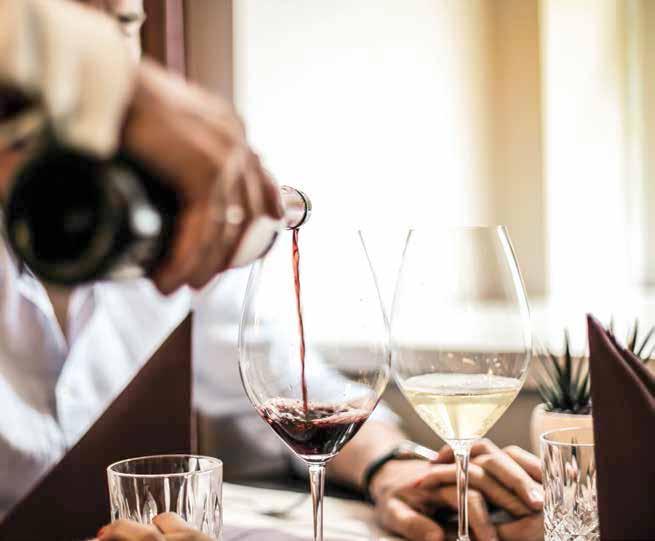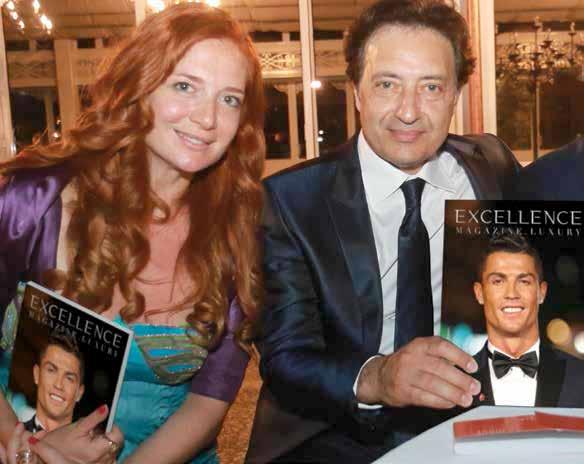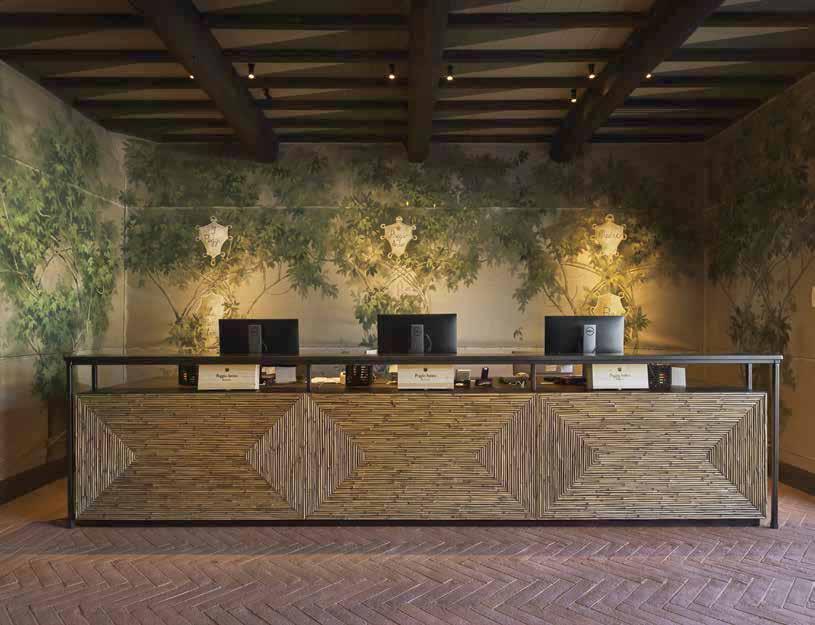
5 minute read
HoW To BECoME A GREAT SoMMELIER
INTERVIEW WITH ARcANgElo TomAsEllo PREsIdENT of THE EuRoPEAN scHool foR sommElIERs INTERVISTA AD ARcANgElo TomASEllo PRESIDENTE DEllA EuRoPEAN School foR SommElIERS
text by catia Aquesta
Advertisement
The European School for Sommeliers was created to promote a European and international culture of good drinking and food awareness. The international office is in Germany and has the task of managing the various European and extra-European offices according to a single vision. The teaching, divided into classroom lectures and study trips to European locations, allows for La European School for Sommeliers nasce per promuovere una cultura europea e internazionale del buon bere e della consapevolezza alimentare. La sede internazionale si trova in Germania e ha il compito di gestire con un’unica visione le varie sedi europee ed extra-europee. La didattica, articolata da lezioni in aula e viaggi studio nelle sedi europee, consente una conoscenza sul cam-
The journalist Catia Aquesta with Arcangelo Tomasello.

knowledge on the field and the possibility to experience many different environmentes. The method used by the European School for Sommeliers is based on a rigorous single training system in all locations. The President of the European School for Sommeliers is Arcangelo Tomasello.
President, how was your school created?
“It all started from our desire to spread the immense culture of wine, with its innumerable facets. This goes for Europe, as well as the rest of the world. For this reason, our teachers are focused on the study and research of new trends, creating a flow of continuous international and updated learning available to our users. This way, we have set up and launched a real educational project aimed at training specialized personnel, to provide more and more qualifications to those who decide to get to know and embark on a real journey into the fascinating world of wine".
Sommelier, a passion or a mission?
“The Sommelier is much more than a simple "wine taster": he is a professional in the wine sector who not only selects, but advises and serves wines to accompany the foods chosen by the diners. It is true that the most po e un confronto diretto con le diverse realtà. Il metodo utilizzato dalla European School for Sommeliers si basa su un rigoroso sistema formativo unico in tutte le sedi. Presidente della European School for Sommeliers è Arcangelo Tomasello.
Presidente, come nasce la sua scuola?
«Nasce dal desiderio di intraprendere un processo di diffusione della vasta cultura del vino, con le innumerevoli sfaccettature che la caratterizzano. Questo non solo nel territorio europeo, ma anche oltre confine. Per questo i nostri docenti sono attenti nello studio e nella ricerca di nuove tendenze, favorendo un flusso di continuo aggiornamento internazionale verso i nostri utenti. Abbiamo, così, costituito e avviato un vero e proprio progetto didattico volto alla formazione di personale specializzato, per rendere sempre più qualificati tutti coloro che decidono di conoscere e intraprendere un vero e proprio viaggio nell’affascinante mondo del vino».
Sommelier, passione o missione?
«Il Sommelier è ben più di un semplice “degustatore di vini”: è un professionista del settore vinicolo che non solo seleziona, ma consiglia e serve i vini per accompagnare i cibi scelti dai commensali. È vero che l’atto più

EUROPEAN SCHOOL FOR SOMMELIERS - INTERNATIONAL
A sommElIER’s culTuRE Is VERy VAsT, As IT Also INcludEs THE kNoWlEdgE of food PAIRINgs, THE PREsENTATIoN ANd sERVIcE of WINE ANd THE mANAgEmENT skIlls lA culTuRA DEl SommElIER è molTo VASTA IN quANTo INcluDE ANchE lA coNoScENzA DEglI ABBINAmENTI col cIBo, lA PRESENTAzIoNE E Il SERVIzIo DEl VINo E lE cAPAcITà gESTIoNAlI
characteristic act of his profession is wine tasting, but the Sommelier can only carry out this activity if he is able to carry out an accurate organoleptic analysis and establish the quality, tone, olfactory characteristics and state of conservation of the wine".
What are the characterizing features of this profession?
“A Sommelier’s culture is very vast, as it also includes the knowledge of food pairings, the presentation and service of wine, and the management skills to take care of a winery. In addition, the Sommelier must accompany the diner throughout the meal and even afterwards. Of course, he will not always be required to do so by every customer or diner, but he must, in any case, be prepared and able to do so”.
Where are your schools located?
“We are present in Italy, Germany, Spain, the United Kingdom, Bulgaria, Romania, Guatemala, Mexico, China, Taiwan, and the United Arab Emirates. In addition, we are carrying out important negotiations with the Ministries of Education in certain Eastern countries and in Africa, to open new offices there”. In short, tasting a wine means performing an ancient and important gesture that allows us to describe its characteristics, forgetting any man-made frontier and focusing on the best that a territory has to offer, only making a critical judgement about what is inside our glass, because scents, tastes and colors have no flags and know no boundaries. caratteristico della sua professione è la degustazione del vino, ma il Sommelier può svolgere tale attività solo se è in grado di effettuare un’accurata analisi organolettica e stabilirne qualità, tonalità, caratteristiche olfattive e stato di conservazione».
Quali caratteristiche contraddistinguono questa professione?
«La sua cultura è molto vasta in quanto include anche la conoscenza degli abbinamenti col cibo, la presentazione e il servizio del vino, le capacità gestionali per prendersi cura di una cantina. In più, il Sommelier dovrà accompagnare il commensale durante tutto il pasto e anche in seguito. Nonostante tutto ciò non gli verrà sempre richiesto da ogni cliente o commensale, egli dovrà, comunque, essere preparato e in grado di farlo».
Dove si trovano le vostre scuole?
«Siamo presenti in Italia, Germania, Spagna, Regno Unito, Bulgaria, Romania, Guatemala, Messico, China, Taiwan, Emirati Arabi. Inoltre, stiamo portando avanti importanti trattative con i ministeri della pubblica istruzione di alcuni Paesi dell’Est e in Africa, per l’apertura di nuove sedi». Insomma, degustare un vino significa compiere un gesto antico e importante che consente di descriverne le caratteristiche dimenticando le frontiere create dall’uomo, lasciando ai territori il compito di dare il meglio di sé, facendo prevalere solo il giudizio critico di ciò che si trova dentro il calice, perché i profumi, i gusti e i colori non hanno bandiera e non conoscono confini.










